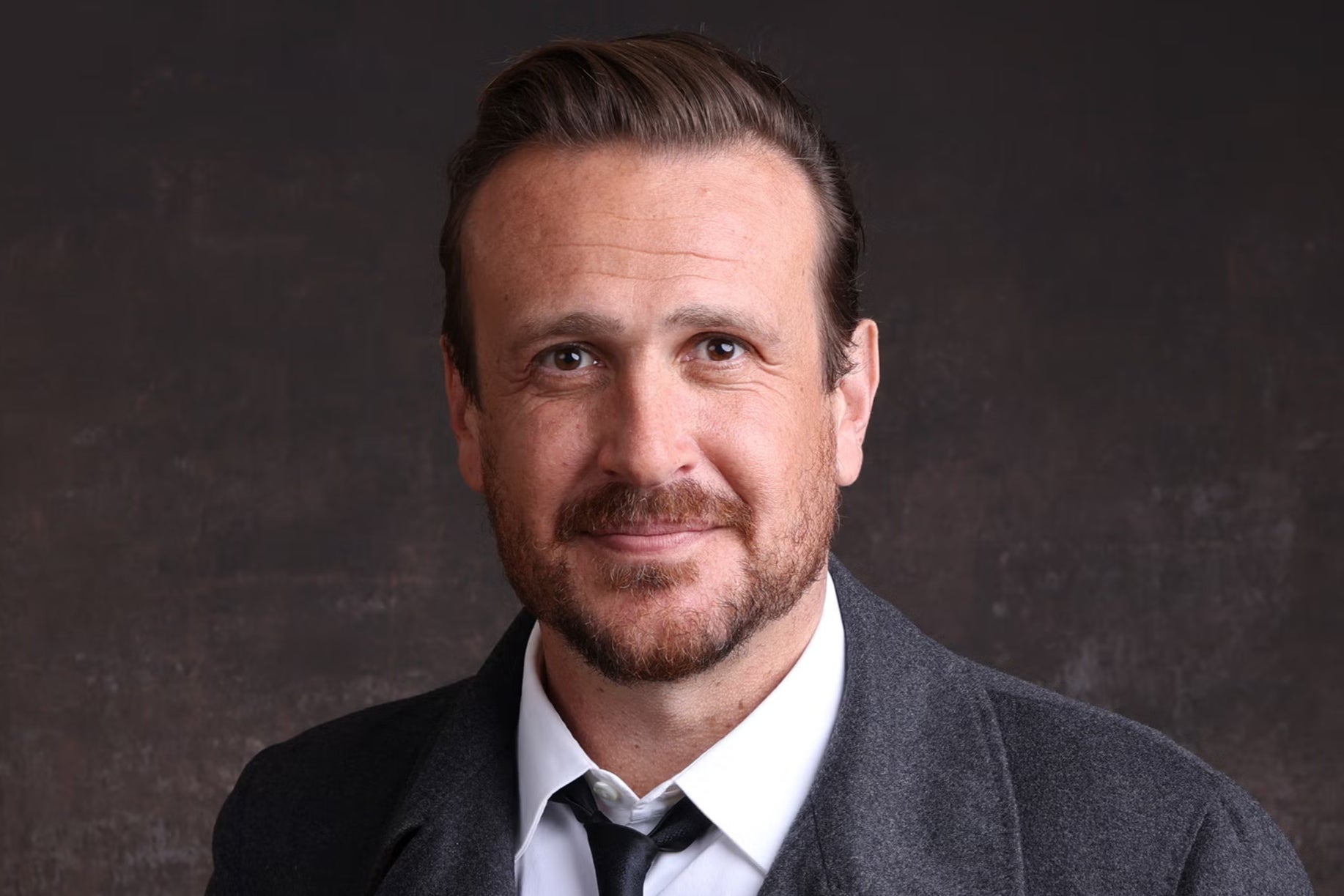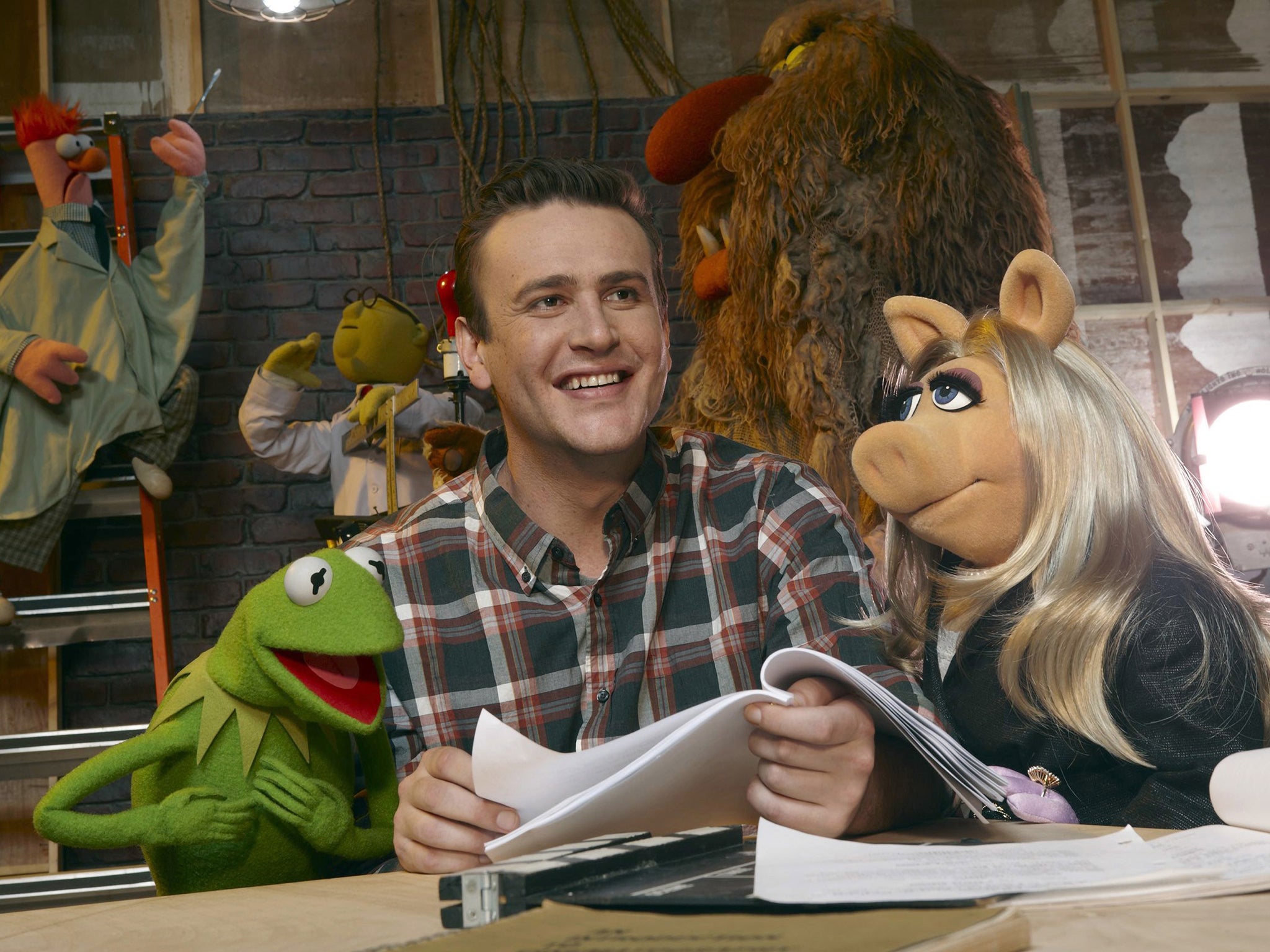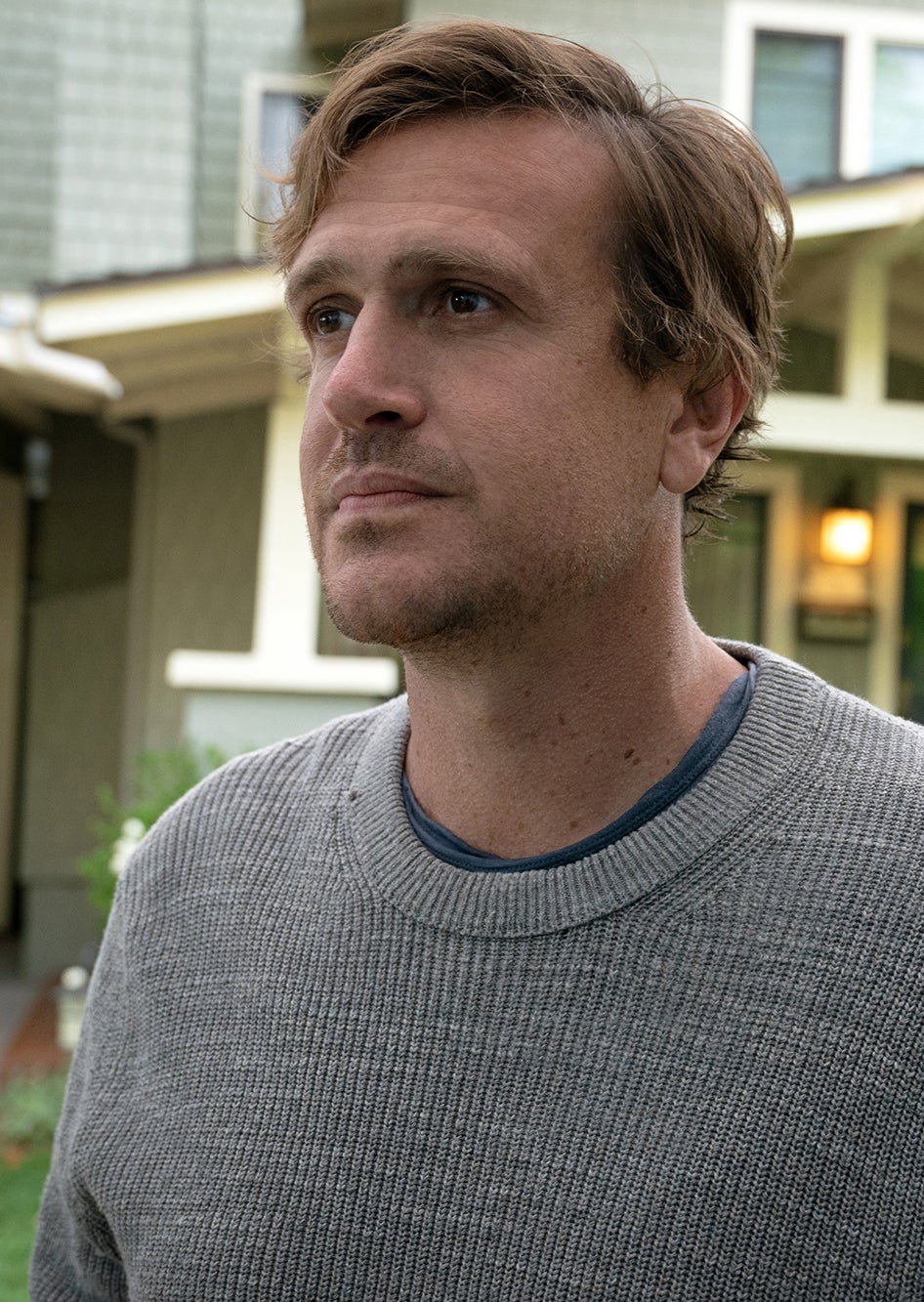‘I think I have kind of a Muppety face’: Jason Segel on Shrinking, puppets, and tiring of How I Met Your Mother
The ‘Forgetting Sarah Marshall’ star talks to Adam White about fleeing Hollywood, his return to television, and being ‘an A-minus person on a good day’


Your support helps us to tell the story
From reproductive rights to climate change to Big Tech, The Independent is on the ground when the story is developing. Whether it's investigating the financials of Elon Musk's pro-Trump PAC or producing our latest documentary, 'The A Word', which shines a light on the American women fighting for reproductive rights, we know how important it is to parse out the facts from the messaging.
At such a critical moment in US history, we need reporters on the ground. Your donation allows us to keep sending journalists to speak to both sides of the story.
The Independent is trusted by Americans across the entire political spectrum. And unlike many other quality news outlets, we choose not to lock Americans out of our reporting and analysis with paywalls. We believe quality journalism should be available to everyone, paid for by those who can afford it.
Your support makes all the difference.For 10 years, Jason Segel was in one of the biggest sitcoms on American television. For the last three of them, he knew he had to get out of it. “They were a hard three years,” he remembers, of his time as the big-hearted Marshall in How I Met Your Mother. “I was really, really in need of doing an artistic check-in, and it was no one’s responsibility but my own.”
That show (originally networked on CBS, but now available in the UK on Disney Plus), along with self-scripted movies like Forgetting Sarah Marshall and The Muppets, catapulted Segel to late-Noughties comedy superstardom in the US. This was the era of Judd Apatow neuroses and the Seth Rogen-verse; Segel was the classically handsome, 6ft 4in giant of the group. He seemed to have it made: total creative control, immense sums of money, wooing everyone from Emily Blunt to Cameron Diaz to Mila Kunis on film. Something nagged at him, though. “The show was fantastic. Making romantic comedies was fantastic. But I was really starting to feel bored of my own work. And that’s not a good way to feel.”
So, Segel disappeared, selling his house in Los Angeles and moving onto an orange grove in sleepy Ojai, California (population: 7,637). This was 2015, and he had a plan. He’d roam. He’d write. He’d absolutely not act. It was a retiree’s dream, only Segel wasn’t actually retired. What he was looking for, really, was silence. “I have an unquiet mind,” he says. “In Los Angeles, I never felt at ease. I’ve found that the very thing that makes you able to achieve something difficult, like the motivation you have in your twenties to get your foot in the door – that’ll be the same thing that’ll kill you. If you don’t recalibrate once you’ve got your whole body through the door...” He lets the image hang in the air. “You need to ease off the throttle. I had to learn that.”
Segel speaks circuitously and opaquely, his secrets kept close to his chest. Look at his work and you’ll find threads of autobiography, from being dumped while naked in Forgetting Sarah Marshall (that really happened to him) to living off-grid, bruised by fame, as the novelist David Foster Wallace in The End of the Tour (that sort of ended up happening to him). But in conversation, his sentences are ripe with ambiguities and pop-culture metaphors. Admittedly, this isn’t helped by our choppy Zoom connection – it feels like we’re basically video-calling via two cans connected by string, so much so that I’m taken aback when he says he’s hanging out in a temporary LA abode, and not, say, up a low hill in Ojai with dodgy wifi.
Segel has light facial scruff and sad eyes; his hair is slicked back in a brown sweep. He has an Eeyoreish aura, something that is found – beneath the marijuana haze and full-frontal nudity – in much of his work. Freaks and Geeks, the short-lived yet influential teen drama that put him on Hollywood’s radar (along with Seth Rogen, Linda Cardellini, Busy Philipps and James Franco), cast him as a disappointed stoner, someone whose dreams far surpassed his circumstances. Heartbreak echoed through Sarah Marshall; personal and professional unrest through his romcom with Blunt, 2012’s The Five-Year Engagement. Unusually, the project he’s best known for, the relentlessly peppy How I Met Your Mother, seems like an anomaly on his CV.
“I think there’s an aspirational version of acting, where you’re thinking that to be that person must be amazing,” he says. “Then there’s the more everyman style – Tom Hanks, Jimmy Stewart, Kermit the Frog. Those are the people I’ve always related to, because I’m like a ‘B’. I am not an ‘A plus’ person. And that’s most of us, right? Like an ‘A minus’ on a good day.”
In Shrinking, Segel’s new Apple TV Plus series, he plays a man sliding head first into ‘C’ territory. He’s Jimmy, a California therapist who’s spiralled since the death of his wife in a car accident. He’s also become estranged from his teenage daughter, and his patients are stuck in the same, deadening cycles. So, inexplicably soundtracked by the indie-rock stylings of Now That’s What I Call Music! 2004, he decides to break bad: telling his patients what he really thinks about their problems, forcing uncomfortable conversations, and rejecting the concerned lecturing of his peers (played by Harrison Ford and Jessica Williams).
All of us at any given moment are privately hitting rock bottom
If Shrinking has an earnest, pleasant quality that calls to mind Ted Lasso – the wholesome Jason Sudeikis comedy that put Apple TV Plus on the map two years ago – that’s because it stems from most of the same people, specifically creator Bill Lawrence and star Brett Goldstein. Segel co-created it, finding there to be something juicy about the idea of a man who’s meant to put other people back together falling apart. “I think it’s so true to life,” he says. “All of us at any given moment are privately hitting rock bottom but interacting with the world [at the same time]. We just went through a strange few years, too. Everyone’s grieving. Everyone’s dealing with the loss of something that we’re never going to get back.”
I admit to finding the show affecting, even if it’s set in a very specific upper-middle-class, therapy-buzzword milieu. But I also tell Segel that it might just be him – I’ve always found him strangely sympathetic, like a big, melancholy canvas for all of life’s woes. He’s definitely heard that before. “I think I have kind of a Muppety face,” he says. Excuse me? “Puppet faces don’t actually move, right? I mean, it’s just the mouth going like that.” He starts pecking his right hand together. “But they make you feel something.”

Watch Apple TV+ free for 7 days
New subscribers only. £8.99/mo. after free trial. Plan auto-renews until cancelled

Watch Apple TV+ free for 7 days
New subscribers only. £8.99/mo. after free trial. Plan auto-renews until cancelled
Segel loves puppets. A lot. Even for a guy who co-wrote the 2011 film of The Muppets, and played a character in Forgetting Sarah Marshall who penned a puppet musical about Dracula, the amount of times Segel mentions puppets in conversation feels slightly excessive. “They’re magic, right?” he beams. “They’re like these inanimate objects that become alive.” He traces his love for them back to his adolescence, when puppets became intertwined with his discovery of the arts.
“I didn’t really have friends, so when I started writing these short films, I didn’t have anybody to be in them,” he recalls. “So I bought a bunch of puppets. And I made these shorts with puppets. It’s how I learnt to write. It’s how I learnt to shoot. I felt like Peter Sellers – free of all my physical constraints. You could play anything because you have these puppets.”

Segel grew up in Los Angeles, the middle child of a lawyer dad and a homemaker mum. His height saw him earmarked for a future in basketball, but he loved acting a lot more, and he got an agent shortly after when a casting director spotted him in a school play. Freaks and Geeks came about in 1999, with director Paul Feig setting out to find fresh faces who were, as Segel puts it, “accurately freaky and geeky”: “People weren’t knocking down our doors to play Captain America, you know?”
The show was cancelled after 18 episodes – despite ardent support from critics – but Segel kept plugging away, writing and selling scripts and auditioning. How I Met Your Mother debuted in 2006, becoming a smash a few seasons in, with Segel growing flush with movie offers as a result. Adulation was tricky to navigate, though. “The feeling of not quite belonging has pervaded my life,” he says. “Some people are more equipped for [fame] than others. I didn’t know how to do any of it. Fame’s weird. It’s a very confusing, uncomfortable place to be.”
He pauses, then reaches for a metaphor. “It’s like Lord of the Rings, right? Everyone gets messed up by the ring to varying degrees. Even Frodo couldn’t handle it, and he was the best of them. I don’t know... maybe the best thing is to be like Samwise Gamgee, you know? Just one step to the left of ‘the guy’, just trying to be really helpful.”

In between seasons of How I Met Your Mother, Segel became a bona fide movie star. He was in buddy comedies (I Love You, Man), black comedies (Bad Teacher), and romantic comedies (Friends with Benefits). But as his run of films went on, he worried they were beginning to feel out of step with the mood of the era. It was on the set of 2014’s Sex Tape, an ill-fated collaboration with Cameron Diaz in which they played a couple who lose their homemade porn video, that Segel realised he had to move on. “Comedy changes,” he says. “It’s always a reflection of what’s going on at the time. If Ace Ventura was made today, you might say, ‘Whoa, calm down!’ I think the era of comedy [I was in] came to an end right before Sex Tape. There was a sense, at least for me, that it wasn’t interesting any more. I was no longer connected to what I was doing. It became more calculated – like, ‘Is this funny?’ I don’t think that’s a good way to make comedy – to try and guess if something is funny.”
He says one of the reasons Shrinking appealed to him was because it was a merging of his favourite sensibilities. He’d spent a few years assuming he’d need to completely divorce himself from comedy to be creatively satisfied, but now admits that was shortsighted. “I didn’t need to throw away part one,” he says. “You can reconcile the two. This is a guy going through real stuff, but who can also pratfall off a bike.”

“I want everything I do to have the emotional equivalent of the nudity in Forgetting Sarah Marshall,” he continues. “But now it’s the grown-up version, where it’s about finding incredible emotional rawness and vulnerability.” How so? He sinks into silence, and bows his head before raising it again.
“I had a break-up with somebody that I loved tremendously,” he says, of the artist Alexis Mixter; they split in 2021 after eight years. “It was a very amicable break-up. We just couldn’t make it work. And like a year later, I was cleaning out one of her drawers, and I found this album that she’d been keeping that she started on our first date.” There were photographs inside it, ticket stubs and love letters. About halfway through the book, Segel turned a page and saw that it was blank. “And that was because we broke up, and there’s now this whole half of an album that would never be filled. I sat there. I had a really melancholy cry.”
This, though, is Jason Segel – a man who can turn absolutely any setback, break-up or form of ritual humiliation into creative gold. What else was he going to do?
“I shut the album, and I immediately wrote to Bill and Brett and said, ‘This goes in the show!’”
‘Shrinking’ is streaming weekly on Apple TV Plus


Join our commenting forum
Join thought-provoking conversations, follow other Independent readers and see their replies
Comments